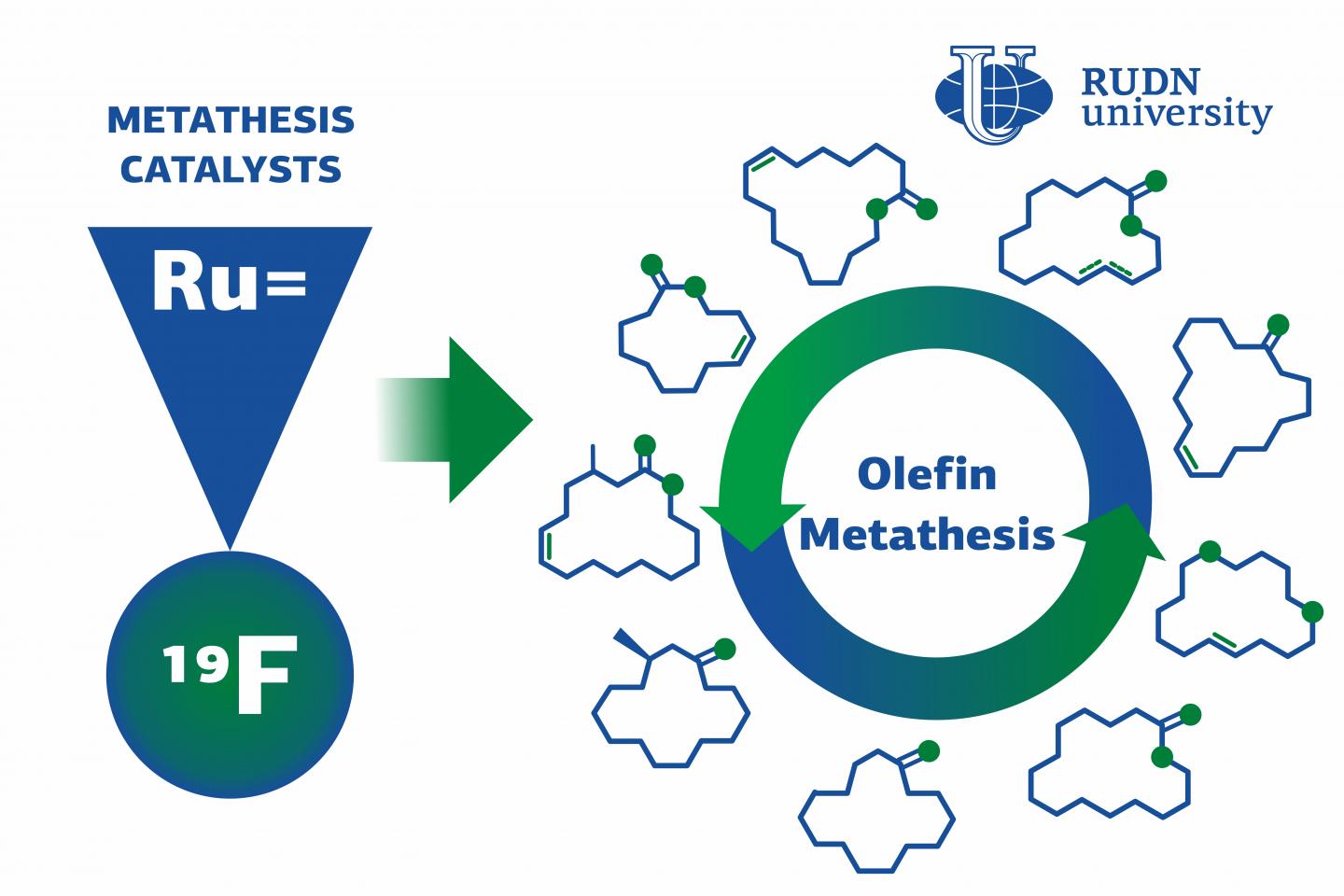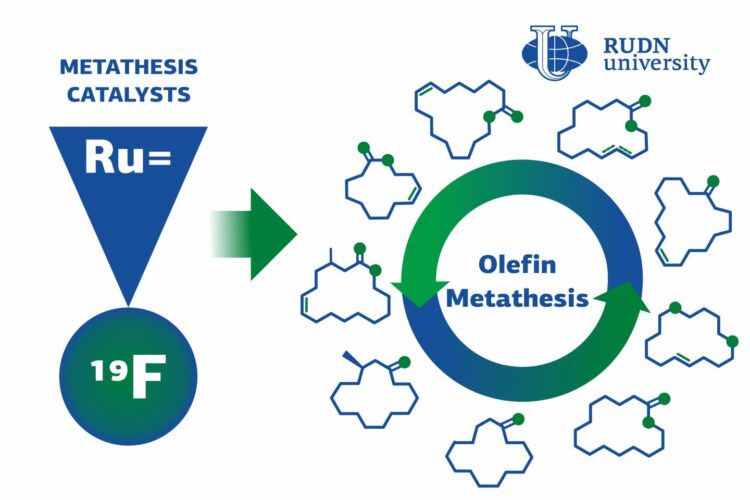
Credit: RUDN University
Chemists from RUDN University found out that fluorine and fluoroalkyl groups increase the efficiency of catalysts in metathesis reactions that are used in the pharmaceutical industry and polymer chemistry. The team also identified fluorine-containing compounds that can simplify the purification of the catalyst from the reaction product, making it reusable. The results of the study were published in the Russian Chemical Reviews journal.
Many medicinal drugs and polymers are based on olefins, organic compounds with a double bond between carbon atoms. To obtain useful substances from them, scientists used the metathesis reaction. In the course of metathesis, double bonds in the molecules are broken, and groups of different molecules attached to them are redistributed. However, this reaction requires powerful catalysts called ruthenium-carbene complexes. A team of chemists from RUDN University found a way to increase their catalytic activity with fluorine. The results of their work could be used in the pharmaceutical industry and industrial chemistry.
“We studied the scientific literature and summarized the data on the methods of adding fluorine atoms and fluoroalkyl groups into different ligands. This technology is used to create ruthenium-carbene complexes that would be active in the metathesis reaction. We have also analyzed the catalytic activity of complexes with different additives,” said Sergey Osipov, PhD, researcher at the Joint Institute for Chemical Research, RUDN University.
Ruthenium-based complexes consist of the transition metal ruthenium and different types of ligands, including carbene ligands (unstable bivalent carbon compounds). When donor ligands react with the electrophilic atom of ruthenium, they bring the parts of the complex together. Electrophilicity is the ability to receive electrons, and it is this quality of the atom of ruthenium in the middle of a complex that determines the activity of a catalyst. The team summarized the data from other studies and found out that electrophilicity could be increased by adding fluorine to the ligands. This method works because both fluorine and fluoroalkyl groups that contain it have a high accepting ability.
By changing the types and structures of fluoroalkyl groups, one can create a catalyst with desired qualities. For example, when the team added fluorine to asymmetrical ligands, an additional reaction between ruthenium and the atom of fluorine was observed. It added stability to the whole complex and increased its catalytic activity. By adding polyfloroalkyl groups to ligands, one can simplify the purification of the catalyst from reaction products and make it reusable.
The results of the study can help chemists improve ruthenium-based catalysts by choosing specific floroalkyl additives for particular requirements.
“Fluorine in ligands speeds up the beginning of catalysis because the bond between ruthenium and the atom of ligand weakens in the course of metathesis. Moreover, adding polyfloroalkyl groups to ligands solves the issue of purification of the catalyst from reaction products. This way, an expensive catalyst can be reused several times,” added Sergey Osipov from RUDN University.
###
Media Contact
Valeriya Antonova
[email protected]
Related Journal Article
http://dx.





